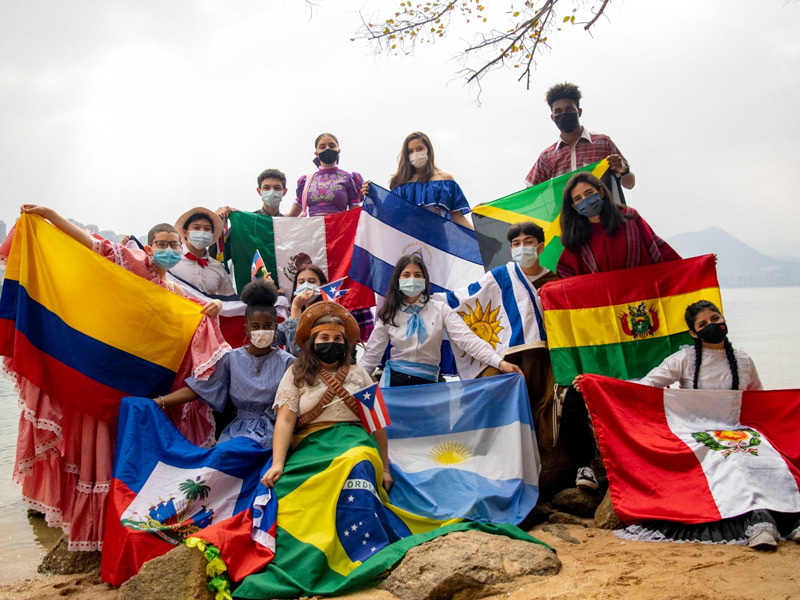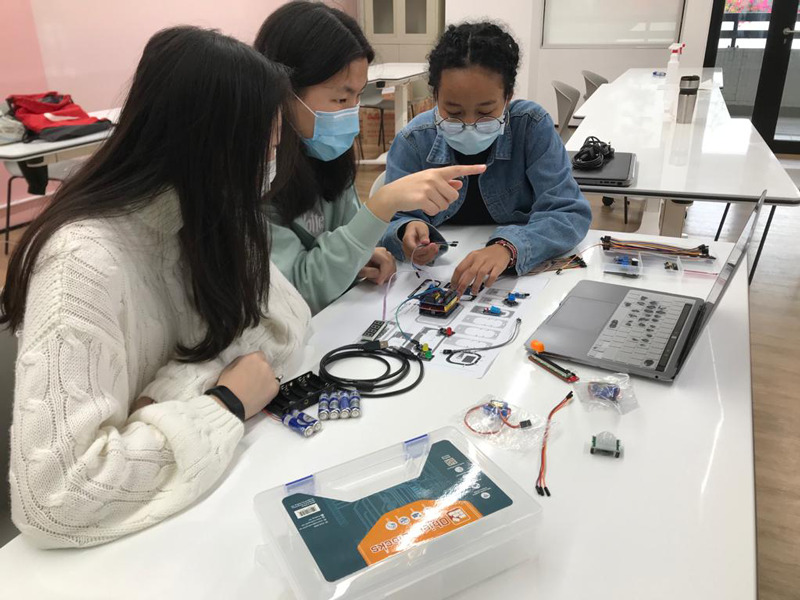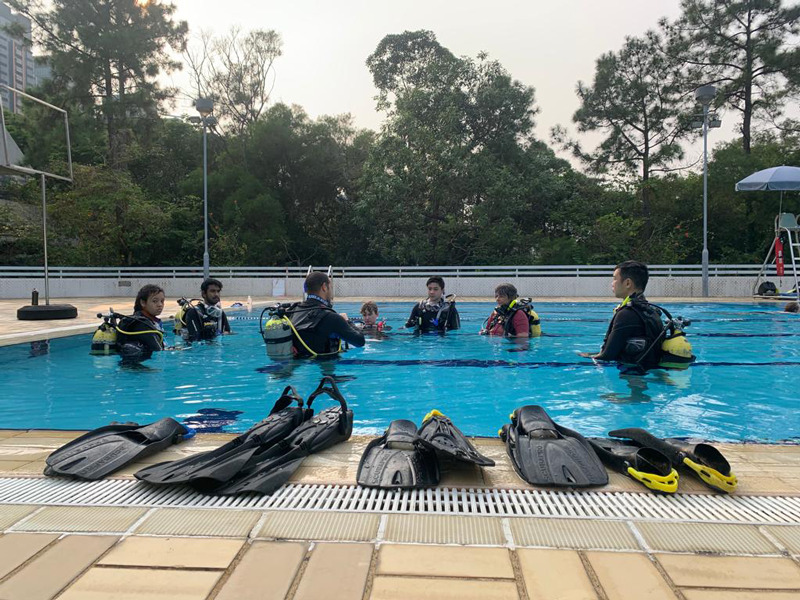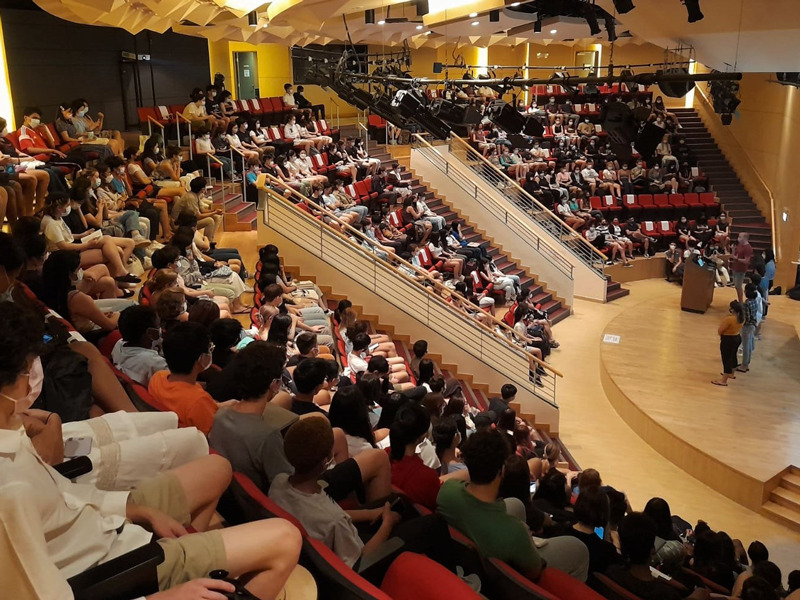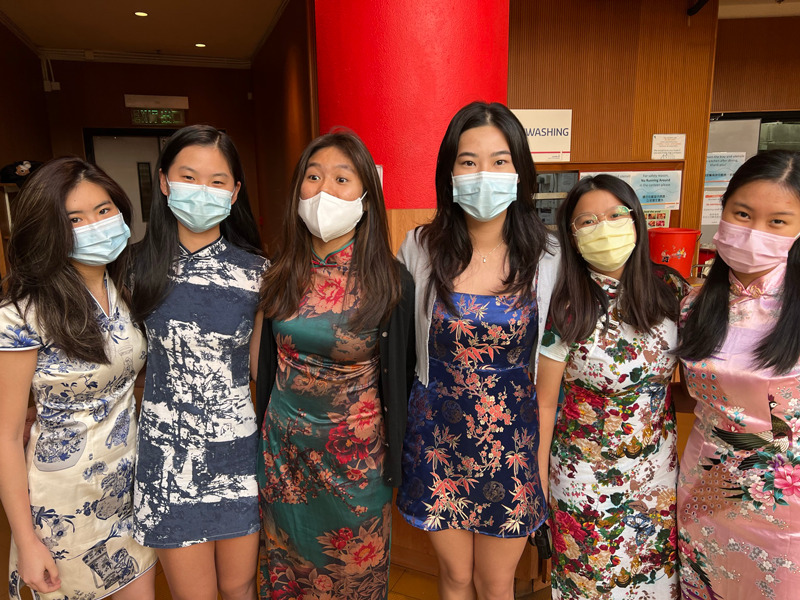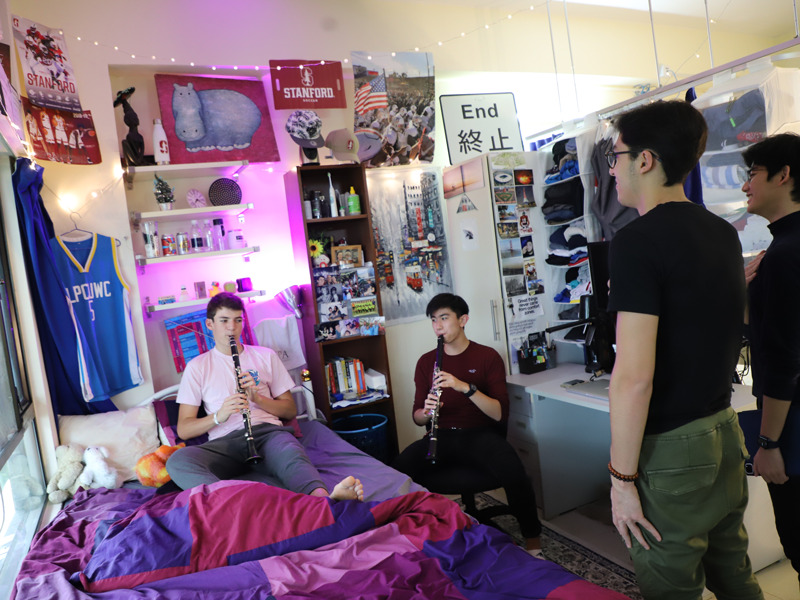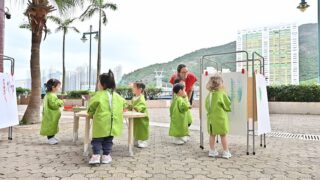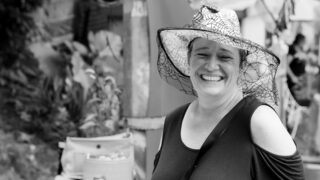Currently celebrating its 30th anniversary is Li Po Chun United World College of Hong Kong (LPCUWC). Coincidentally, it’s also the 50th anniversary of the UWC movement here – half a century since the first batch of Hong Kong students went to study abroad in overseas UWC schools. To mark the occasion, the school and the United World College Hong Kong Committee (UWCHK) collaborated on a recent exhibition: “UWC Education for Peace and Sustainability Exhibition”. It was held at Central Market in the first half of February.
The event gave us the opportunity to sit down and chat with ANTHONY TONG, who is currently the Board Chairman for LPCUWC. Anthony has worked in education for nearly 50 years. After overcoming some of his own challenges as a student, he was admitted to HKU in 1968, before becoming a full-time teacher and ultimately rising through the ranks of the Hong Kong Education Department. We asked him about his background, his role and what an UWC education looks like.
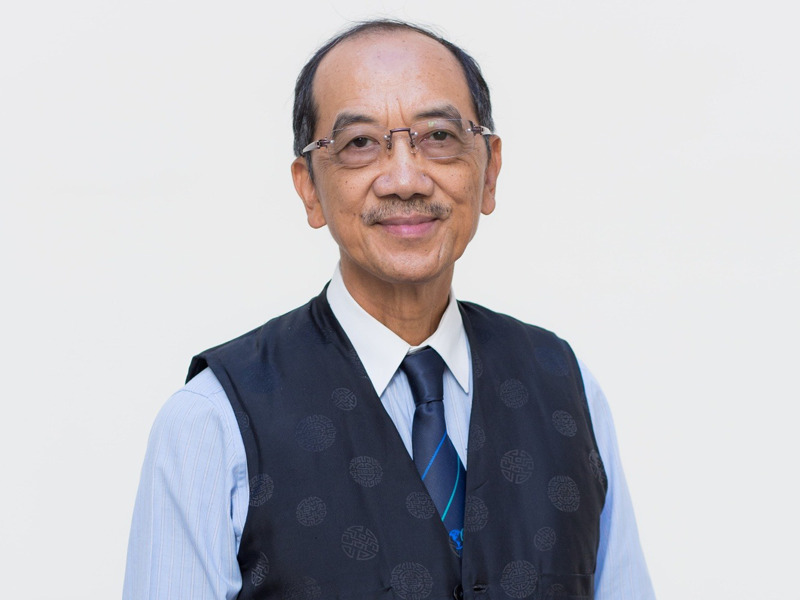
What were you like as a school student?
I was an introverted and lonely student who got some good maths scores, but who generally felt purposeless. Eventually, I was expelled from an elite school for failing O-Level English. That was when I found an Anglican school and met my mentor. He was the principal and an English teacher and a priest. (And a great yarn-spinner of his adventures in wartime China!) I reformed as a student, gained some plausible English grades and entered HKU, where I shed my ugly-duckling feathers.
What in your eyes are some of the qualities of a good teacher?
A good teacher believes in young people and takes responsibility for their upbringing. They should also be a good learner themselves, with an understanding that times are moving, and an understanding of the social and emotional dimensions in learning. I would also say that a good teacher is someone who can understand human failings, admit their own failings and be ready to move on.
What does your current role at LPCUWC entail?
I’m the Chair: I share my professional knowhow, experience and human network resources, and I act as “firefighter” to support the principal and staff, and students’ learning. In the height of the pandemic, for example, this meant finding every way possible to support and protect the students – from issues around RAT kits and masks, to keeping up with the ever-changing government regulations.
It also meant working with students and staff whose homes were so far away and yet they had no way of going back. As things were starting to open up a little more, I took some of those students who had to stay in Hong Kong (because they couldn’t go home to Tasmania or Cameroon, or wherever else they were from) out on my little sailboat to give them some fresh air and a different look at Hong Kong. So I’m definitely an odd-jobs person!
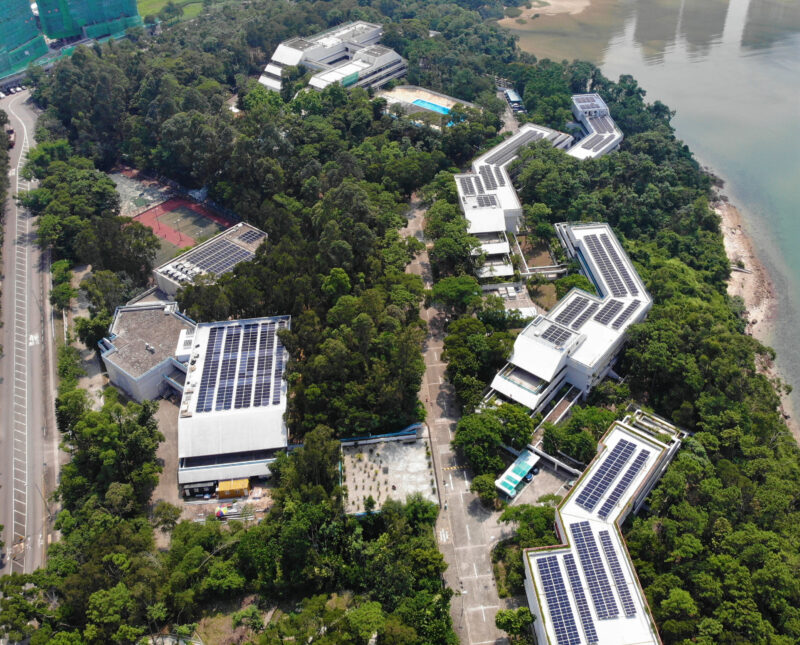
For readers who might not be familiar with it, could you tell us a bit about the school?
LPCUWC is a full boarding school, with very inviting classes that maximise learning, and an active student participation. Many of the colourful activities at the school are student-led. In a sense, we “flip” the classroom. By allowing the students to lead in many instances, it means there’s a smaller amount of “teaching”, but a lot of learning.
It’s also a place where students engage with peers of drastically different backgrounds. We have close to 90 nationalities on campus this year, I believe – which can be transformational.
We are an IB school, which is of course quite demanding – but most of our students are faring very well. This is despite some of the overseas students starting at the school with almost no English. At the start, they can only say “good morning”, “goodbye” and “thank you”; but, after two years, they have a meteoric rise and end up getting 37 or 38 points in the IB!
How does the school take advantage of its location?
The campus is right next to nature, which complements our focus on health, wellness and environmental sustainability. We’re also connected by an excellent transport network. This lets the students explore Hong Kong together – all part of the bonding process and creating life-long friendships.
What are some of the important pillars of a UWC education?
Deliberate diversity is a key. Regardless of culture, creed, colour or social economic status, everybody enters a UWC school as an equal and gets their due respect. Also, the team-building that goes on through all the enjoyable activities and the extensive Residential interaction allow for a deep dive through personal experiences. This, in turn, helps to debunk any prejudiced viewpoints and instead builds a culture of inclusivity, and re-shapes personal world views.
Graduates leave not only with sterling grades and university acceptances; they also buy in to a lifetime personal commitment to push the boundaries of peace and sustainability.
How do LPCUWC students benefit from being part of the UWC global community?
I think there is a general trust when UWC graduates meet. The network pervades all corners of the earth – and it’s still growing fast. It means synergies for the greater good are always possible.
What do students at the school go on to do when they graduate?
Many of the graduates enter top-class universities round the world. Then, after having successful careers in the commercial and financial world, many also turn to full-time charity work.
What’s new or notable at the school for 2023?
We have a new outdoor Amphitheatre for student activities, a Wellness Centre with a music focus, and a new principal starting at the school from September of this year.
What else keeps you busy apart from your UWC role?
I have a full-time job as Executive Director of the Amity Foundation (amityfoundation.org/eng), an NGO started by Christians in mainland China to alleviate and help with disaster relief. (I’m a practicing Christian of more than 50 years.) I’m also a Tai Chi Master – I teach friends everything from the art and mindfulness of the practice to hardcore combat theories. And I’m also a lead singer in a rock band – we do a couple of charity gigs once or twice a year!
We understand that you sailed competitively in the 1970s – it sounds like you still enjoy getting out on the water!
Absolutely! I like to race a 23-foot Ruffian as a member of RHKYC. There is a spirituality about being exposed to the full fury of Mother Nature. It’s also a plain old stress reliever – and great way to arrest muscle deterioration!
IPCUWC is at 10 Lok Wo Sha Lane, Sai Sha Road, Sha Tin, New Territories.
The school is a member of the United World Colleges: uwc.org.
2640 0441 | office@lpcuwc.edu.hk | lpcuwc.edu.hk

